When I learned Autostraddle’s Pride theme this year would be Deviant Behavior, it immediately evoked images of all my favorite fictional deviants. From classic high school mean girls to literal cartoon villains, we have been gifted with some deliciously complicated queer characters over the years.
Now, this isn’t to be confused with Hollywood’s long, sordid history with purposefully queer coded villains like Ursula, Scar, and Captain Hook, intended to vilify these traits. Nor should it be confused with media making female villains hypersexual, which often includes being sexual toward and/or with women as a way to “prove” they’re morally corrupt. While that is absolutely still an issue in modern media, queer representation has expanded such that not all of our characters have to be clean-cut pillars of the community in order to be considered “good” representation.
One of the earliest examples I thought of were Root and Shaw from Person of Interest.
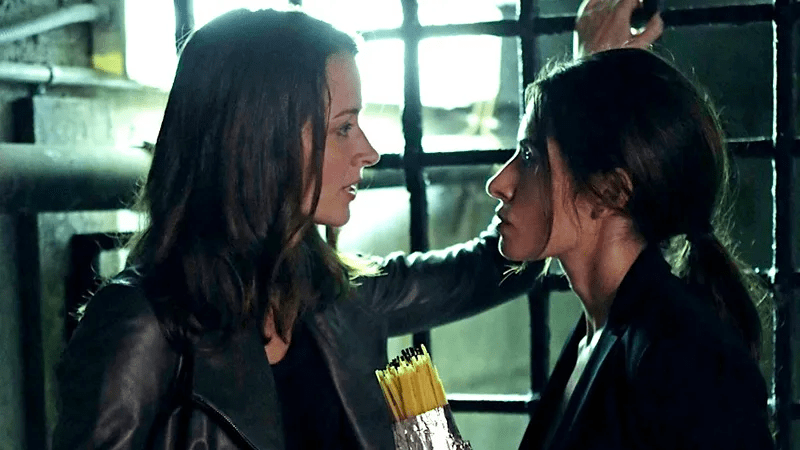
Surely there are earlier examples, but Root tied Shaw up in 2013, which is practically two lifetimes ago in TV years. That’s also pretty early in TV history to feature morally gray queer characters we’re meant to root for (no pun intended). Granted, if my memory serves, the show wasn’t 100% sure they were queer right away, but still, I’m counting them as “deviants” who were complex, interesting, and who might have been villains (I mean, they did kill people, after all) but their queerness wasn’t what was villainized. And they were heroes in my heart by the end.
I also thought of Rose on Jane the Virgin.
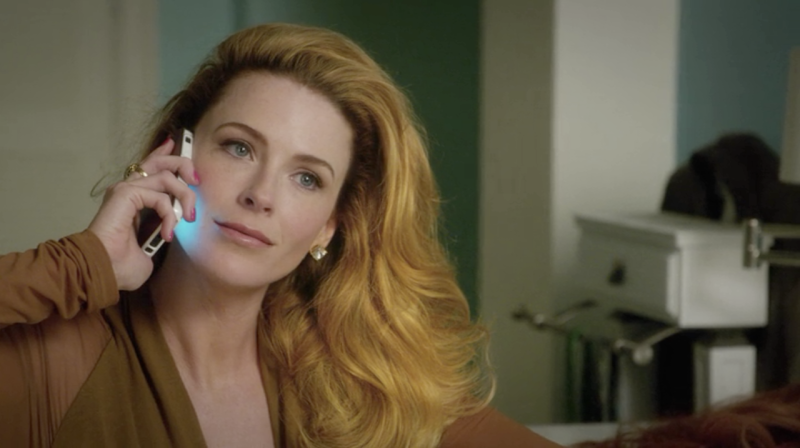
Now, an argument could be made here that she toes the line a little. Yes, she’s a well-rounded character (and one of my personal favorites on the show), but she skirts a liiiiiiittle too close to the “obsessive lesbian” trope sometimes. That said, no character exists in a vacuum, so while on paper she might be on the line between tropey and not, in the context of this show that also had other amazing queer representation like Luisa, Petra, and JR, that pushes Rose firmly into the “win” column for me. (And the “alive” column, but that’s an argument for another day.)
While Root and Shaw were the earliest examples I thought of timeline-wise, the actual first example that popped into my head (perhaps because it’s practically her name) was Villanelle from Killing Eve.
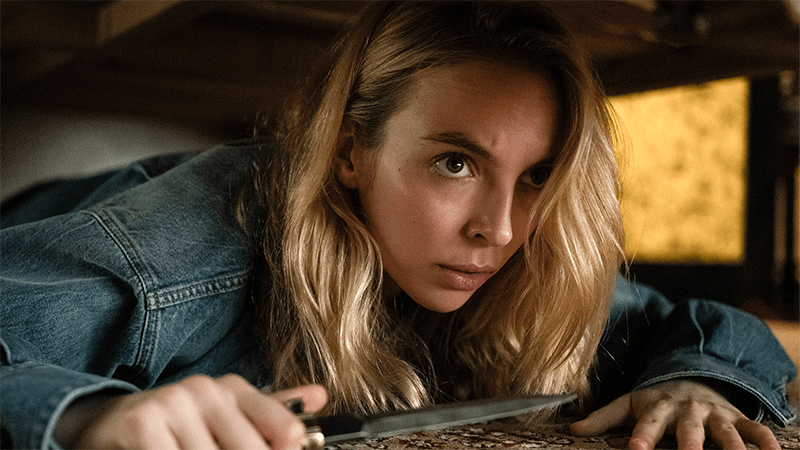
Now, there’s no denying she’s a villain; we watch her brutally murder many, many people. But there’s ALSO no denying that she’s the most delightful murderess you ever did see. Her queerness was not only not villainized, it was sometimes the only thing that grounded her in humanity — specifically, through her connection to Eve.
Similarly, we have literal demon from hell Mazikeen from Lucifer.
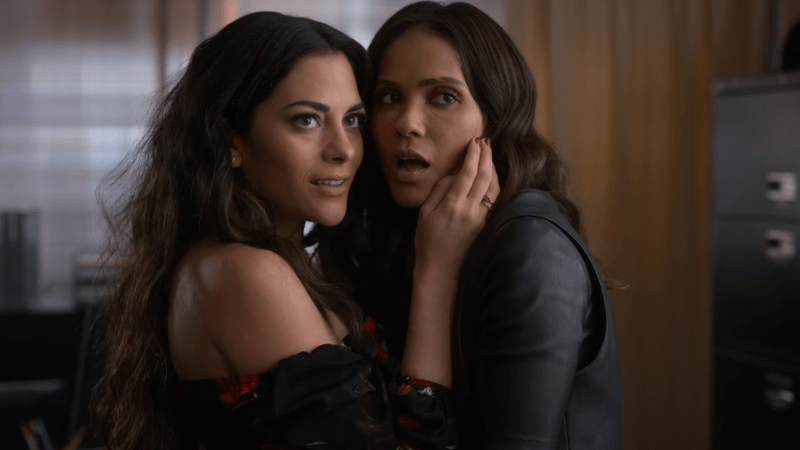
She was all fire and fury when she first arrived on Earth, but she discovered the softer parts of her, not only through her friendships with Lucifer and little Trixie, but also, eventually, in her romantic interest in Eve. While, in the beginning of the show, Lucifer practically had to have her on a leash to keep her from killing everyone who looked at her sideways, with Eve she was soft and just so in love. And still a little bad, but in a good way. It’s always nice to see the trope flipped on its head; instead of her queerness being used to show she was a morally bankrupt demon from hell, her queerness was what emerged as the most human thing about her as she learned how to be good.
And you don’t really get more villainous than literal cartoon villains Harley Quinn and Poison Ivy.
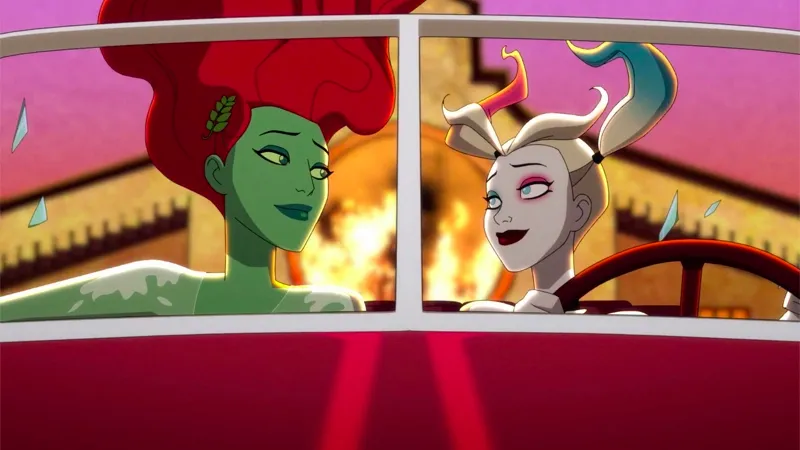
They are bashing skulls and doing eco-terrorism all over the place in the animated series Harley Quinn but are still lovable and, perhaps more importantly, still IN love, for four seasons and counting. (It took them a whole season to figure out they belonged together, but we can forgive them that.) Bonus points for Poison Ivy also being in the live-action show Batwoman, where she was in love with another woman entirely, and was also played by Bridget Regan, because if there’s one thing Bridget Regan is good at, it’s playing complex, queer villains. (You’ll never convince me that Dottie Underwood wasn’t IN LOVE with Agent Carter.)
Last but not least on my list I have my most recent faves: Agatha and Rio from Agatha All Along.
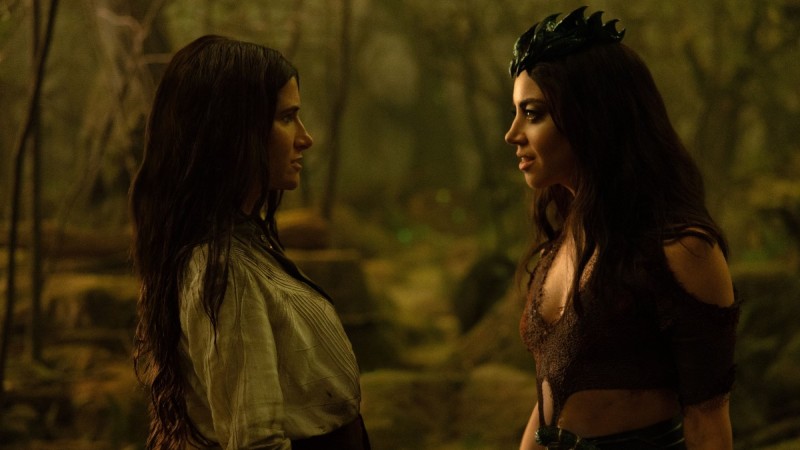
Agatha was the villain in Wandavision, and we all read her as queer, but we didn’t get confirmation until she got her own spinoff where she was in love with Death herself. They are both more than the worst thing they’ve done, and their relationship is heartbreaking and complicated and deliciously witchy. In fact, their relationship was the crux of the entire show. The entire plot would be very different if they were not in love, which isn’t something you can say about every queer couple on television. Plus, this show gave us the iconic line, “If you want a straight answer, ask a straight lady,” which is one of my favorite ways a character has confirmed their queerness on screen in plain words I’ve ever seen.
These are just a few of my favorite characters that have flipped things on their head as queer villains whose queerness isn’t villainized. I know there are more, and I would love for you to tell me your favorites. It’s a fine line, but some characters have ended up so far on the wrong side of it over the years that it’s nice to celebrate the characters who are so bad it’s good. I tried to focus on true “villains” who have committed actual crimes against humanity, and not just mean girls, though characters like Santana Lopez from Glee, Cheryl Blossom from Riverdale, and arguably Shauna from Yellowjackets are also deliciously deviant. (Though Shauna falls somewhere smack in the middle of the Mean Girl to True Villain scale, and she’s operating under a different set of principles than the rest of the world…that’s a different essay entirely.)
I hope we continue to be gifted fun, villainous queers on television in the years to come. We need positive and wholesome and sexy and joyful representation, we do, but we also need messy and chaotic and dangerous and even evil representation. Because queer people can be anything! Including deviant.
Autostraddle’s Pride 2025 theme is DEVIANT BEHAVIOR. Read more, and be deviant!







